#silmarien
Text
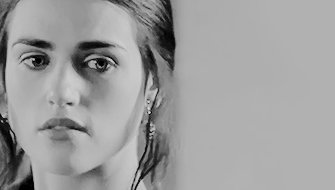
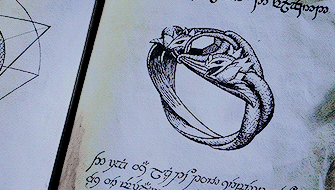

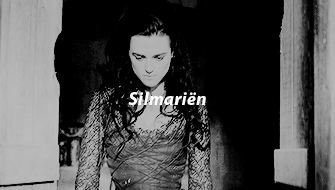

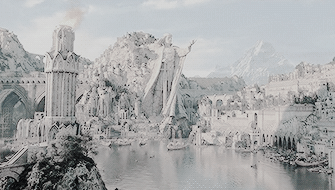
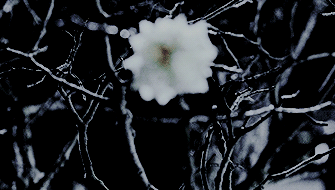

TOLKIEN LADIES: Silmariën
From Silmariën’s lineage came the Kings of Gondor and Arnor living in exile in Middle-earth. She was one of the most significant of Númenor’s royal family, as she inherited both the sword Narsil and the Ring of Barahir from Tar-Elendil, her father. These heirlooms were then handed down to her descendants, the Lords of Andúnië and later the Kings of Gondor and Arnor. The royal jewel, Elendilmir, included a fillet of Mithril that had once belonged to Silmariën survived the Fall of Númenor to become part of the crown of Arnor, and eventually survived up until the time of King Elessar.
#lotredit#silmedit#tolkienedit#oneringedit#oneringnet#sourcetolkien#tolkiensource#fantasyedit#litedit#tolkienmine#tolkienladies#my people#silmarien#QUEUE.
74 notes
·
View notes
Text

eight maids a-milking, seven swans a-swimming, six geese a-laying, FIVE GOLDEN RINGS! four calling birds, three french hens, two turtle doves, and a partridge in a pear tree
-
since in the last poll you decided that in light of a potential invasion the humans become Eru's problem (the elves have all been evacuated via swan-ship on day 7), here we have some very angry FA/SA ladies (and Morwen's cows)
Now that we're getting to a whole string of fun days:
#silm#silmarillion#holiday#12 days of christmas#swan ships#from left to right:#haleth#tar ancalime#silmarien#(she should have been queen! aldarion didnt even want to be king!)#tar miriel#erendis#andreth#morwen#aerin#i am now realizing the swans necks look a little lumpy#oh well i will fix it + add texture when i am less tired#days 9 10 and 11 are going to be fun >:D
36 notes
·
View notes
Text
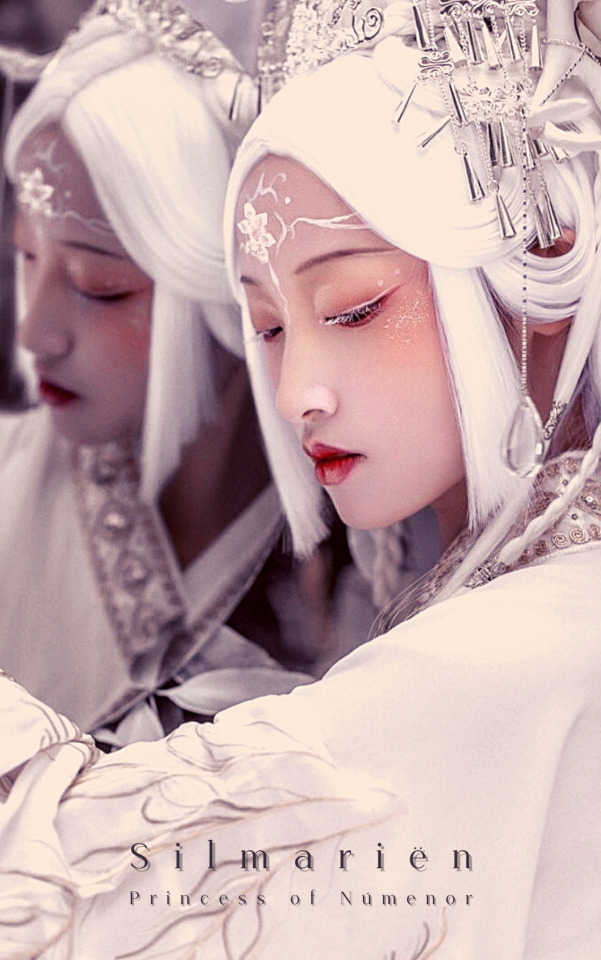

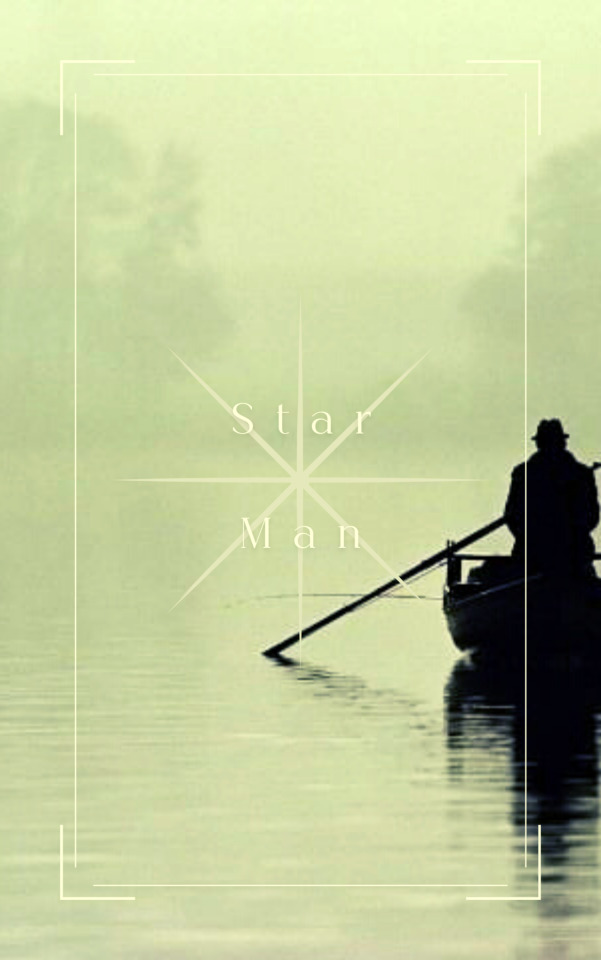

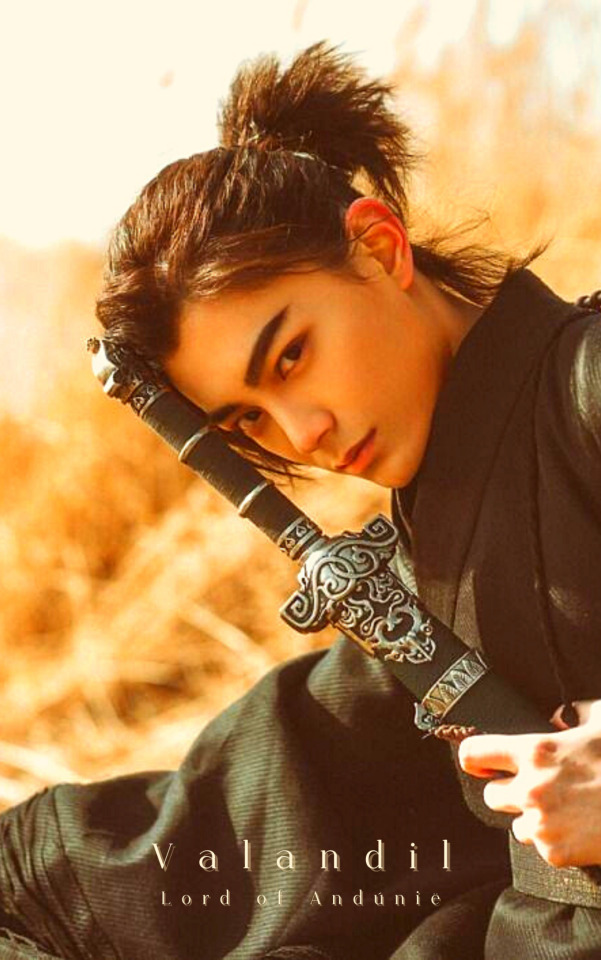

ANCESTORS OF THE LORDS OF ANDÚNIË || silmariën, elatan and valandil
@secondageweek day ii · men
#secondageweek#tolkiensource#oneringnet#tuserosie#userlyndeth#userindomiel#usertoi#userhaleths#silmarien#elatan#valandil#numenor#numenoreans#lords of andunie#aka elendils ancestors#my edit#✨ mine#i flunkered around with the translation for silmariens name dont come at me#also i have become obsessed with them over the last two days#minor characters my beloved
119 notes
·
View notes
Text
Obscure Tolkien Blorbo: Round 2
Silmariën vs Meássë
Silmariën:
The eldest child of Tar-Elendil, the fourth King of Númenor.
She missed out being a Ruling Queen by *one* generation!! But she inherited the Ring of Barahir and other heirlooms and the Lords of Andunie descended from her :)
Meássë:
A warrior Valië from an early draft of the legendarium, sister of Makar.
She's described as being fierce and having bloody arms and i just think that's neat
She's a warrior Vala with bloody arms who thinks Valinor is for the Valar only. Silmarillion Valar are way too squeaky clean. Meássë makes them much messier and more interesting.
Round 2 masterpost
35 notes
·
View notes
Text
Favourite Female Tolkien Character Poll - Round 1, Match 22
Silmarien
The eldest sister of Tar-Meneldur, fourth king of Númenor. If the law of the succession passing to the eldest child regardless of gender had begun with her rather than with Meneldur’s granddaughter Ancalimë, she would have been Númenor’s first Ruling Queen. The Lords of Andunië were descended from her, and through them the line of Elendil and the kings of Gondor and Arnor.
Tar-Míriel
The fourth and last ruling Queen of Númenor. One of the Faithful, like her father Tar-Palantír, she was usurped and taken in forced marriage by her cousin Ar-Pharazôn. She died in the Downfall of Númenor.
#favourite female tolkien character poll#numenor#numenoreans#silmarien#tar miriel#the silmarillion#unfinished tales#tolkien
18 notes
·
View notes
Photo

Did Andromeda know that the sea was haunted
That her beauty was a curse?
Silmariën and Isilmë, from the wise and the lovely.
For SWG @silmarillionwritersguild ‘s Jubilee challenge (March 2019: Hidden Figures). View the art and read it here!
#silmarien#isilme#numenor#silmariën#isilmë#númenor#tolkien#lotr#silm#silmarillion#silm art#tolkien art#ladies of tolkien#swg#silmarillion writers guild#silmarillion art#silm fanart#tolkien fanart#lis tag
42 notes
·
View notes
Text
youtube
HAPPY EASTER!!! Was really inspired to create this for the glory of my Lord and Saviour Jesus Christ. There's not much that I can offer him for all he's given me other than myself and all that I have so with the gifts and skills he's given me, I can praise him and call others to Himself.
#lent#easter#christianity#catholicism#lord jesus christ#christianedit#video#the bible#a.d the bible continues#the passion of the christ#risen#ben hur#after death#the chosen#Paul apostle of Christ#by your side#tenth avenue north#NatTheDwobbit#Silmarien#Youtube
5 notes
·
View notes
Text

Silmariën, the ancestor of the Lords of Andúnië
#myart#spruceart#drawing#tolkien fanart#tolkien#tolkien stuff#akallabeth#numenoreans#numenor#númenor#silmariën#silmarien
5 notes
·
View notes
Text

Lferion's moodboard Love's Garden (thumbnail)
Click link for full view of the moodboard (and text of the included poem) on AO3.
Drabble written for Lferion's moodboard for a SWG challenge:
'The sea-gift well hath throve'
Summary: It is a bit nerve-wracking, courting a princess of the House of Elros. Elatan of Andunie hopes he is up to her standards.
Click link below to find my drabble on SWG:
2 notes
·
View notes
Text
the wise and the lovely
Silmariën and Isilmë, from the beginning to the end.
Written for the Jubilee challenge (March 2019: Hidden Figures) on the SWG @silmarillionwritersguild ).
—
The tales of Númenor are few and far between, and fewer still are those of their ladies— lovely Tindómiel and bitter Erendis and bright Ancalimë; proud Telperiën and merry Vanimeldë and poor, doomed Míriel.
But what of the rest? The women of Númenor who did not directly influence the flow of history, the women who were simply content to exist. What of them?
—
In the end, it comes down to this: Silmariën is of the sea, and Isilmë is of the land.
That is all.
—
This tale begins in tears, and ends in laughter. This, of course, implies a happy ending.
But who says this tale does not begin in joy and end in sadness? Tears can be happy, and laughter can be wild. In the paradox that is Númenor, perhaps catharsis is never achieved.
But who knows? The age has ended; the women are gone.
Keep reading on AO3
#silmarien#isilme#numenor#silmariën#isilmë#númenor#tolkien#lotr#silm#silmarillion#akallabeth#ladies of tolkien#swg#skyboundqueen
3 notes
·
View notes
Text
I honestly find it irritating that Tolkien/Tolkien's narrators are repeatedly like ... well if Tar-Aldarion's rule about equal inheritance regardless of gender had come earlier, Silmariën would have been Ruling Queen! The Lords of Andúnië would have been the royal house all along!
It's especially annoying when it's coming from the Third Age, but really just an overall irritation. These narratives and narrators do not give a single fuck about Silmariën except as a transmitter of blood, birthright, and heirlooms to men. The "but Silmariën!" is not some stab at inheritance rights for women, it's just a pretext for the dynastic claims of men.
Besides, if royal women inherited on an equal basis beginning with Silmariën rather than with Tar-Ancalimë, it would prevent the line of the Lords of Andúnië from exclusively following male-line descent anyway—the ultimate heir wouldn't be Elendil, it'd be some random cousin (possibly a female cousin!) descended through other firstborn daughters along the line, even provided that the family tree would be at all recognizable after a historical change that drastic.
It's like Arvedui invoking Aldarion's law of gender-neutral primogeniture to justify claiming the throne of Gondor in place of his wife, the Gondorian princess Fíriel. Under Aldarion's law, either Fíriel herself or (if she were unwilling) her son would have succeeded King Ondoher, not Arvedui. Nobody in the dispute seems concerned with any right she might have; they only bring her up as a point of transmission between the rights of men. Ultimately she matters to the narrative because of the bloodline she passes on to the male-line male chieftains of the Northern Dúnedain culminating in Aragorn. Who knows what she was like or what she wanted?
Did Silmariën want to be Ruling Queen? Within the narrative we have, nobody cares.
#i think 'what if tar-silmariën' is a genuinely fascinating au#(guess who owns the tar-silmarien username)#but i kind of hate how it's used in canon#as this casual prop bolstering up her male-line male descendants—in a way which doesn't even make sense!!#ANYWAY#anghraine rants#legendarium blogging#legendarium fanwank#anghraine babbles#númenórë#silmariën#fíriel daughter of ondoher#arvedui depreciation blog#arvedui critical#everyone critical really but especially him#team dúnedain
23 notes
·
View notes
Text
Hello! I am here today to post an agonisingly long HC about Gondorian-Dunadain/Faithful held beliefs and philosophies on sex and marriage. As per Tolkienian necessity when trying to apply to canon, this is going to be incredibly catholic, homophobic, racist and sexist BUT we’re also subverting it later so... keep hanging on!
Firstly, to define the generally accepted in-world scholastic origin for a lot of these beliefs, some of which are metaphysically ‘true’ for the in-universe offered mechanics of souls. I will be initially stealing a few concepts from an ancient magnum opus fanfic called Hands of the King, namely that Silmariën (daughter of Tar-Palantir in Numenor, ancestress to Elendil and essentially the mother of the Faithful Dunadain) had a massive and foundational impact on the culture of the Faithful. The Silmariën Discourses are a well reproduced and distributed collatation of all her writings on all aspects of living a ‘Faithful life’ that she wrote throughout her life. And whilst they touch on many diverse topics, sex and marriage is one of them.
Of course, these ideas were heavily influenced by Numenorean understanding of elven traditions, hence LaCE is also an in-universe document in a manner of speaking, written by even earlier Numenorean scholars during the periods of great friendship between elves and Numenor.
And then, whilst the Silmariën discourses serve as the basis for these customs in Gondor and Arnor and are still quite a common sight within Gondorian libraries and upperclass bookshelves, even taught in schools to a certain degree, other sages and scholars in both Arnor and Gondor have added too or debated their details for generations since then. Hence amongst the Southern and Northern Dunadain you will find differences of custom and perspective.
And finally, whilst this is technically the attitude of the ‘dominant’ culture in Gondor, it is at the same time technically a culture belonging to an ethnic minority. Even if it is the widespread and reinforced perspective, taught to every citizen within Gondor, it is in no way the only perspective and opinions upon it are complex and diverse throughout the many people groups that make up the country itself. With all that in mind, here is the basic framework of the traditonal viewpoint;
- Obviously, the first major point; sex is for marriage and procreation alone. It is a joy, but only when it is shared between you and your 'one', your partner in body and soul. Otherwise it is a corruption and a symptom of your tragic fall from grace.
- In Elves this concept is spiritually enforced, the Faithful (and elves themselves) believe that elves cannot have sex outside of marriage for sex to them is a matter of bonding souls in and of itself and to share that intimacy with anyone who wasn’t your bonded partner would cause harm to you. This is because elves interact with the world using their souls, their bodies are more like vessels, it is their souls that bind them to the world.
- However, because humans are connected to the world by their bodies and when they die they leave the circles of Arda never to return, they have been allowed the clemency and mercy of a less restrictive and more fluid matter of choice. It is a grievous hurt to be separated from your soul’s partner, so the atani are allowed ‘lesser’ bonds of love and companionship as they pass through the world.
- But this clemency has a downside, it allows room for corruption. This corruption appears in many forms, such as polygamy, queer attraction, promiscuity, marriage for anything but love and sexual violence, but each of them are all to be deeply pitied as signs of a weak and feeble mind and heart that has succumbed to the evil influences of Arda-marred. Such people can resist their corruptions, but they should not be allowed to influence others.
- As Silmarien explains it; "If Men are made to be visitors of short passage, then it is right that they shall be loath to bind themselves to someone else and be sundered from that beloved; two wills are deprived of their choice and much grief must follow. Men could give their forms in marriage, yet withhold their full will, something the Elves simply could not do. While this might lessen their grief at the inevitable passing of their mate, it also left open the door for corruption by the Enemy, for Men were tempted very easily into bestial ways, abusing this grace by sharing their bodies promiscuously."
- It is generally accepted amongst the Dunadain that, if you are 'a man of high race’, you are more protected against this corruption than those of less blessed lineages. And the truer the blood of Numenor runs in you, the more you are expected to lead a ‘blessed’ life and wed your heart’s true partner. But you are not exempt! Through life or evil thoughts, one might still become corrupted and be inspired to baser deeds and corrupted lifestyles, making you alike to the heretics of old Numenor.
- But the Atani should not despair, for (uncorrupted) men are still capable of the same depths of devotion in marriage as elves. Those of high race can indeed experience similar aspects of soul-bonding, ‘willing’ their souls together and knowing that person on a more intimate and spiritual level, sensing their presence and so forth. And this is believed to be the ‘true nature’ of men.
- And in combination with that, as a combat to this problem of corruption, marriage as a ceremony allows a more physical solution to the issue of men’s wills and partners, both as a public declaration of that will, as well as an aid to those averagely-corrupted men. Marriage creates an environment that will, hopefully, lead men towards their natural ‘willing’ and a blessed life.
There is some division over one passage within Silmarien’s discourses;
"While Men may not be compelled to will their marriage in the manner of the Eldar, holding forever steadfast to a single choice, still they are capable of it and it is their proper nature. In marital congress are their wills given unity with their forms. It is known among the Dúnedain for some to will thusly from the start or all at once, and those who do are changed and never repent of their choice. Most who will, however, come slowly to this state; their willing is weaker and may sometimes be broken or relinquished. Even so, most Dúnedain will know this joy. To be pitied are those who, like lesser Men, cannot or will not fulfill their natures. They are corrupt."
In Gondor, in the later third age, it is no longer socially acceptable to speak the opinion that ‘lesser men’ are incapable of the same depth of love as the Dunadain. This does not mean none hold that opinion, only that society has enough middle men within it, even in the higher classes, that they have pushed social graces toward a less derogatory view. Though it still often influences the Southern Dunadain philosophy.
However, within the northern dunadain, it is still a fully accepted wisdom and partly accounts for both their isolationism and the lack of Dunadain marrying into wider families in Eriador. Cautionary tales from Northern Dunadain to their sons and daughters run thus; it is tragic but you must not fall for the illusion of love in the eyes of these middle men, their devotion cannot be true, you are destined for a higher love.
SO! That’s all the bigotry out of the way, now for my headcanoned ‘true’ mechanics of all this that I am holding as canon for my character and world interpretations on this blog. These hcs both semi-apply to the ideas of ‘fea’ as they are set out, but also allow gay people to exist and for elves to be able to sleep with who they want without canonically being a sickness of the soul or whatever.
So, yes, Elves have souls that are more seperate from their bodies. They are immortal, as in they live so long it might as well be classed as forever within the confines of Aman. And their body is not what keeps them there, it is just the way they move around the world and interact with it physically. Whereas mortals, (putting a pin in dwarves for the moment) such as humans and hobbits are bound to Arda by their bodies alone and when their bodies are killed so is their connection to this world and they leave to ‘somewhere else’. Unspecified. As such, elves and their bondmates will not suffer the sorrow of parting forever, whereas humans might. Hence, elven souls ‘bond’ during sex, whereas humans must ‘will’ for it to occur.
Which, in terms of morality, are all neutral facts until you include the machinations of the Valar and Eru and what they WANT it all to mean. I am galvanised by the idea that, whilst some technical aspects of these things are true, the actual meaning of them have been distorted, first by colonialist elves, who then encouraged colonialist humans, and whom were all inspired by Valar unwilling to believe themselves wrong in any way despite the fact that Morgoth also distorted their understanding of the world they had sung of to begin with. And meanwhile Eru does not care about any of it, he only cares if his 'right to the throne of the world’ is being challenged.
The concept I am running with is the idea that the true ultimate 'divine' aspect of the world comes from the Secret Fire, which Eru used to kindle life yes, but which is in fact a distinct entity from him, unknowable even to him. And in kindling life, it naturally diversified into it’s own aspects of life in completely neutral ways that were meant to coexist and collaborate to produce a harmonious world for the benefit of all. But, upon being placed into a world still ruled by Valar (whom are canonically flawed in actions, motives and understanding whilst also possessing great power) that world and the new life within it was subject to their influences and persuaded by their held beliefs of the ‘right’ way of life, that some of the diverse aspects the secret fire took that they did not understand were ‘corruptions’. Hence the elven faithful belief system was born.
Which, (completely and utterly whoops by accident and unbiased happenstance on my part) creates the situation where Boromir and all of Gondor can say 'I don't care what is divinely ordained to be right as god claims it and I do not care if it is for some great plan I could never understand, I know it to be wrong in my heart' and they are fundamentally correct for saying that, because they (and all other creatures in arda) ARE the secret fire and are therefore actually more divine than Eru is in the end.
They can be handed all of these truths about souls and bonding and death and all the works of the Valar and Morgoth's corruption and so forth that all SEEM to support these Valar-originated concepts and the elves and Eru's divine supremacy and ownership over all creation etc and still say I don't care, I don't care if I'm divinely wrong. I'm humanely right and I would rather hold to that mundane choice than be holy in the eyes of a divinity that claims these things.
Hence some ‘heretical’ elves can nod and agree, yes, elves bond, souls become entangled. I have bonded many times, I have shared my soul with many, both in the elven way, the dwarven way and the human way. I unlearned what I was taught and listened to what my soul told me, that elves can create their own realities, we can decide what things mean to us, what a soulbond of love looks like. The fact that I am more soulfully made up of all the pieces of many people who loved me is a beautiful strength not a corrupted weakness.
And Boromir, whom had in essentials been agnostic to the whole thing as a young man and was then confronted by the strange evidence of him being ‘of high race’ in his natural ‘willing’ to Theodred. He eventually acknowledges, yes, I am experiencing some of these things people talk about, which makes it seem like what the Faithful preach is true, and therefore I am corrupted and my love for Theodred is a corruption, despite my ‘willing’ to him. But I have decided I don't care. This is the life I lead, this is the love I have. If it is not acceptable to God then he should have given me a different life and made me a different man.
And Denethor who spends his whole life trying to negotiate with divinity, he cares, he does, he wants to be faithful, he wants to be good! But faith keeps failing him, failing everyone and everything he cares about, he has been abandoned by God in the midst of a holy way FOR God, and yet so many of these seemingly innocuous things are wrong? And eventually he is angry and betrayed and says fine, I will be what you believe me to be, this thing you call a great sin is far kinder and far more just than anything divinity has ever asked of me.
And all of them are right! Because the Secret Fire is divine, in and of itself, and what it wills is what is right for it’s own existence.
THERE again so sorry, this is even longer than I thought it would be.
#gondor meta#tolkien meta#soap operas in mannish sindarin#erran vs tolkien#boromir#gondor#dunadain#text post#tolkien#lotr#gender and sexuality in gondor#borodred#denethor#long post#longpost#long post cw
129 notes
·
View notes
Text
curufinrod and the vanyar agenda
Welcome to another episode of idle au/plot chattering with me and @skaelds
(Some canon elements, characters are all on our interpretations of them)
• the vanyar agenda is what we call indis’ subtle hand in arranging vanyarin matches for her grandchildren. She succeeded on this with Angrod (with Eldalote) and Turgon (with Elenwe). Personal headcanon that Indis is a younger sister of Ingwion, and, the Vanyar, though smaller in number than Teleri and Noldor, are Manwe and Varda’s favorites and therefore enjoy prestige above the other Eldarin kindred (on what other ground exactly? Lmao)
• arafinwe and earwen’s children are special, particularly their eldest child, finrod. Blood of all three kindred of the eldar, a different kind of prestige. Indis of course wants to secure this unique thing further to her kin by having arrangements to betroth Finrod to Amarië, also of the vanyar.
• Where does curufinrod enter the picture? It gets more interesting if either finrod or curufin are female in this AU.
with lady curufinwë
• things get a very interesting turn in an iteration where curufinwë is the lady. Because finrod, arafinwe’s heir, pursues her. That in itself is a loaded move, because they’re first cousins and that’s not going to be allowed by taniquetil.
• finrod is his father’s heir, and also carries his own successional rights to two thrones of the eldar. he weds lady curufin, he transmits those rights to their kids (hello, tyelpe and siblings!)
• it’s also a power move and will pressure arafinwe to make certain choices he will not like making, but has no other way out but to make them.
• if feanor’s exile happens, finrod will follow his wife and kids to formenos. That right there is a political statement arafinwe cannot ignore (he’s forced to take sides lmao)
• nolofinwe would have done everything in his power to prevent this wedding
• feanor watches him froth at the mouth
• first time finwe probably gets pissed at nolofinwe outright
• the nobility are also divided here and do not like the power imbalance created in favor of feanaro’s side of the family
• to shut them up, finrod and curufin get into making babies as soon as they can. They have three to four children early in their married life, with a gap of twenty to thirty years between kids. This shuts up political opposition to their union.
• lady curufin as queen of nargothrond
• tyelpe with very real chances of being high king during the second age
with lady finrod
• tamer version of the au, since curufin is far from the line of succession, but this time the controversy is with his and laurëloxë’s successional rights.
• angrod would be arafinwe’s heir, but his elder sister loxë will still have successional rights to transmit to her future children
• there’s still considerable opposition from the nobility and nolofinwe’s side of the family on this one
• like the earlier iteration, curufin and loxë get on the business to produce children asap, to silence all opposition.
• curufinwe atarinke, king of nargothrond and his wife queen laureloxe. Tyelpe as a prince of nargothrond
• also real chances for tyelpe to be high king in this one.
In both versions of the AU, their kids are named: telperinquar, telemmaite, silmarien and miriel. (Yes, the numenoreans stole their kids’ names 🤣)
#silmarillion#curufin#finrod#curufinrod#curufinwe#findarato#finrod felagund#crown of thorns#my hcs#elven politics my beloved
14 notes
·
View notes
Text
Daily Clintasha Video
youtube
please check out Silmarien on youtube
0 notes
Text
Obscure Tolkien Blorbo: Round 1
Silmariën vs Tata
Silmariën:
The eldest child of Tar-Elendil, the fourth King of Númenor.
She missed out being a Ruling Queen by *one* generation!! But she inherited the Ring of Barahir and other heirlooms and the Lords of Andunie descended from her :)
Tata:
One of the first Elves to awaken.
Second elf to wake up, and the first of the Tatyar (the Avarin ethnic group that includes the Noldor.) Honestly the least-characterised of the three elvish ancestors in my headcanons, but she’s still my girl. Probably the first elf to actually be interested in her surroundings, naming trees and grasses and lake fish while Imin was droning at the stars. The least reckless Tatya you’re ever likely to meet, and has the scars to prove why. The first elf to see the darkness rising in the east, and the first to sharpen a spear against it. Again, the old man says she’s male and has a satellite wife named Tatie, but that’s boring so I made her a lady. Headcanon that when Finwe heads off to Aman, she stays at Cuivienen to guard their rear. She’s still out there, somewhere, slinking through the night to battle the darkness, and though her form has changed much the point of her spear is always pointed at evil.
Round 1 masterpost
35 notes
·
View notes
Text
Hello! I am here today to post an agonisingly long HC about Gondorian-Dunadain/Faithful held beliefs and philosophies on sex and marriage so that the next hc I post will make sense. As per Tolkienian necessity, this is going to be incredibly catholic, homophobic, racist and sexist BUT we’re also subverting it later so... keep hanging on!

Firstly, to define the generally accepted in-world scholastic origin for a lot of these beliefs, some of which are metaphysically ‘true’ for the in-universe offered mechanics of souls. I will be initially stealing a few concepts from an ancient magnum opus fanfic called Hands of the King, namely that Silmariën (daughter of Tar-Palantir in Numenor, ancestress to Elendil and essentially the mother of the Faithful Dunadain) had a massive and foundational impact on the culture of the Faithful. The Silmariën Discourses are a well reproduced and distributed collatation of all her writings on all aspects of living a ‘Faithful life’ that she wrote throughout her life. And whilst they touch on many diverse topics, sex and marriage is one of them.
Of course, these ideas were heavily influenced by Numenorean understanding of elven traditions, hence LaCE is also an in-universe document in a manner of speaking, written by even earlier Numenorean scholars during the periods of great friendship between elves and Numenor.
And then, whilst the Silmariën discourses serve as the basis for these customs in Gondor and Arnor and are still quite a common sight within Gondorian libraries and upperclass bookshelves, even taught in schools to a certain degree, other sages and scholars in both Arnor and Gondor have added too or debated their details for generations since then. Hence amongst the Southern and Northern Dunadain you will find differences of custom and perspective.
And finally, whilst this is technically the attitude of the ‘dominant’ culture in Gondor, it is at the same time technically a culture belonging to an ethnic minority. Even if it is the widespread and reinforced perspective, taught to every citizen within Gondor, it is in no way the only perspective and opinions upon it are complex and diverse throughout the many people groups that make up the country itself. With all that in mind, here is the basic framework of the traditonal viewpoint;
- Obviously, the first major point; sex is for marriage and procreation alone. It is a joy, but only when it is shared between you and your 'one', your partner in body and soul. Otherwise it is a corruption and a symptom of your tragic fall from grace.
- In Elves this concept is spiritually enforced, the Faithful (and elves themselves) believe that elves cannot have sex outside of marriage for sex to them is a matter of bonding souls in and of itself and to share that intimacy with anyone who wasn’t your bonded partner would cause harm to you. This is because elves interact with the world using their souls, their bodies are more like vessels, it is their souls that bind them to the world.
- However, because humans are connected to the world by their bodies and when they die they leave the circles of Arda never to return, they have been allowed the clemency and mercy of a less restrictive and more fluid matter of choice. It is a grievous hurt to be separated from your soul’s partner, so the atani are allowed ‘lesser’ bonds of love and companionship as they pass through the world.
- But this clemency has a downside, it allows room for corruption. This corruption appears in many forms, such as polygamy, queer attraction, promiscuity, marriage for anything but love and sexual violence, but each of them are all to be deeply pitied as signs of a weak and feeble mind and heart that has succumbed to the evil influences of Arda-marred. Such people can resist their corruptions, but they should not be allowed to influence others.
- As Silmarien explains it; "If Men are made to be visitors of short passage, then it is right that they shall be loath to bind themselves to someone else and be sundered from that beloved; two wills are deprived of their choice and much grief must follow. Men could give their forms in marriage, yet withhold their full will, something the Elves simply could not do. While this might lessen their grief at the inevitable passing of their mate, it also left open the door for corruption by the Enemy, for Men were tempted very easily into bestial ways, abusing this grace by sharing their bodies promiscuously."
- It is generally accepted amongst the Dunadain that, if you are 'a man of high race’, you are more protected against this corruption than those of less blessed lineages. And the truer the blood of Numenor runs in you, the more you are expected to lead a ‘blessed’ life and wed your heart’s true partner. But you are not exempt! Through life or evil thoughts, one might still become corrupted and be inspired to baser deeds and corrupted lifestyles, making you alike to the heretics of old Numenor.
- But the Atani should not despair, for (uncorrupted) men are still capable of the same depths of devotion in marriage as elves. Those of high race can indeed experience similar aspects of soul-bonding, ‘willing’ their souls together and knowing that person on a more intimate and spiritual level, sensing their presence and so forth. And this is believed to be the ‘true nature’ of men.
- And in combination with that, as a combat to this problem of corruption, marriage as a ceremony allows a more physical solution to the issue of men’s wills and partners, both as a public declaration of that will, as well as an aid to those averagely-corrupted men. Marriage creates an environment that will, hopefully, lead men towards their natural ‘willing’ and a blessed life.
There is some division over one passage within Silmarien’s discourses;
"While Men may not be compelled to will their marriage in the manner of the Eldar, holding forever steadfast to a single choice, still they are capable of it and it is their proper nature. In marital congress are their wills given unity with their forms. It is known among the Dúnedain for some to will thusly from the start or all at once, and those who do are changed and never repent of their choice. Most who will, however, come slowly to this state; their willing is weaker and may sometimes be broken or relinquished. Even so, most Dúnedain will know this joy. To be pitied are those who, like lesser Men, cannot or will not fulfill their natures. They are corrupt."
In Gondor, in the later third age, it is no longer socially acceptable to speak the opinion that ‘lesser men’ are incapable of the same depth of love as the Dunadain. This does not mean none hold that opinion, only that society has enough middle men within it, even in the higher classes, that they have pushed social graces toward a less derogatory view. Though it still often influences the Southern Dunadain philosophy.
However, within the northern dunadain, it is still a fully accepted wisdom and partly accounts for both their isolationism and the lack of Dunadain marrying into wider families in Eriador. Cautionary tales from Northern Dunadain to their sons and daughters run thus; it is tragic but you must not fall for the illusion of love in the eyes of these middle men, their devotion cannot be true, you are destined for a higher love.
SO! That’s all the bigotry out of the way, now for the headcanoned ‘true’ mechanics of all this that I am holding as canon for my character and world interpretations on this blog. These hcs both semi-apply to the ideas of ‘fea’ as they are set out, but also allow gay people to exist and for elves to be able to sleep with who they want without canonically being a sickness of the soul or whatever.
So, yes, Elves have souls that are more seperate from their bodies. They are immortal, as in they live so long it might as well be classed as forever within the confines of Aman. And their body is not what keeps them there, it is just the way they move around the world and interact with it physically. Whereas mortals, (putting a pin in dwarves for the moment) such as humans and hobbits are bound to Arda by their bodies alone and when their bodies are killed so is their connection to this world and they leave to ‘somewhere else’. Unspecified. As such, elves and their bondmates will not suffer the sorrow of parting forever, whereas humans might. Hence, elven souls ‘bond’ during sex, whereas humans must ‘will’ for it to occur.
Which, in terms of morality, are all neutral facts until you include the machinations of the Valar and Eru and what they WANT it all to mean. I am galvanised by the idea that, whilst some technical aspects of these things are true, the actual meaning of them have been distorted, first by colonialist elves, who then encouraged colonialist humans, and whom were all inspired by Valar unwilling to believe themselves wrong in any way despite the fact that Morgoth also distorted their understanding of the world they had sung of to begin with. And meanwhile Eru does not care about any of it, he only cares if his 'right to the throne of the world’ is being challenged.
The concept I am running with is the idea that the true ultimate 'divine' aspect of the world comes from the Secret Fire, which Eru used to kindle life yes, but which is in fact a distinct entity from him, unknowable even to him. And in kindling life, it naturally diversified into it’s own aspects of life in completely neutral ways that were meant to coexist and collaborate to produce a harmonious world for the benefit of all. But, upon being placed into a world still ruled by Valar (whom are canonically flawed in actions, motives and understanding whilst also possessing great power) that world and the new life within it was subject to their influences and persuaded by their held beliefs of the ‘right’ way of life, that some of the diverse aspects the secret fire took that they did not understand were ‘corruptions’. Hence the elven faithful belief system was born.
Which, (completely and utterly whoops by accident and unbiased happenstance on my part) creates the situation where Boromir and all of Gondor can say 'I don't care what is divinely ordained to be right as god claims it and I do not care if it is for some great plan I could never understand, I know it to be wrong in my heart' and they are fundamentally correct for saying that, because they (and all other creatures in arda) ARE the secret fire and are therefore actually more divine than Eru is in the end.
They can be handed all of these truths about souls and bonding and death and all the works of the Valar and Morgoth's corruption and so forth that all SEEM to support these Valar-originated concepts and the elves and Eru's divine supremacy and ownership over all creation etc and still say I don't care, I don't care if I'm divinely wrong. I'm humanely right and I would rather hold to that mundane choice than be holy in the eyes of a divinity that claims these things.
Hence Sarte can nod and agree, yes, elves bond, souls become entangled. I have bonded many times, I have shared my soul with many, both in the elven way, the dwarven way and the human way. I unlearned what I was taught and listened to what my soul told me, that elves can create their own realities, we can decide what things mean to us, what a soulbond of love looks like. The fact that I am more soulfully made up of all the pieces of many women who loved me is a beautiful strength not a corrupted weakness.
And Boromir, whom had in essentials been agnostic to the whole thing as a young man and was then confronted by the strange evidence of him being ‘of high race’ in his natural ‘willing’ to Theodred. He eventually acknowledges, yes, I am experiencing some of these things people talk about, which makes it seem like what the Faithful preach is true, and therefore I am corrupted and my love for Theodred is a corruption, despite my ‘willing’ to him. But I have decided I don't care. This is the life I lead, this is the love I have. If it is not acceptable to God then he should have given me a different life and made me a different man.
And both of them are right! Because the Secret Fire is divine, in and of itself, and what it wills is what is right for it’s own existence. THERE again so sorry, this is even longer than I thought it would be.
0 notes